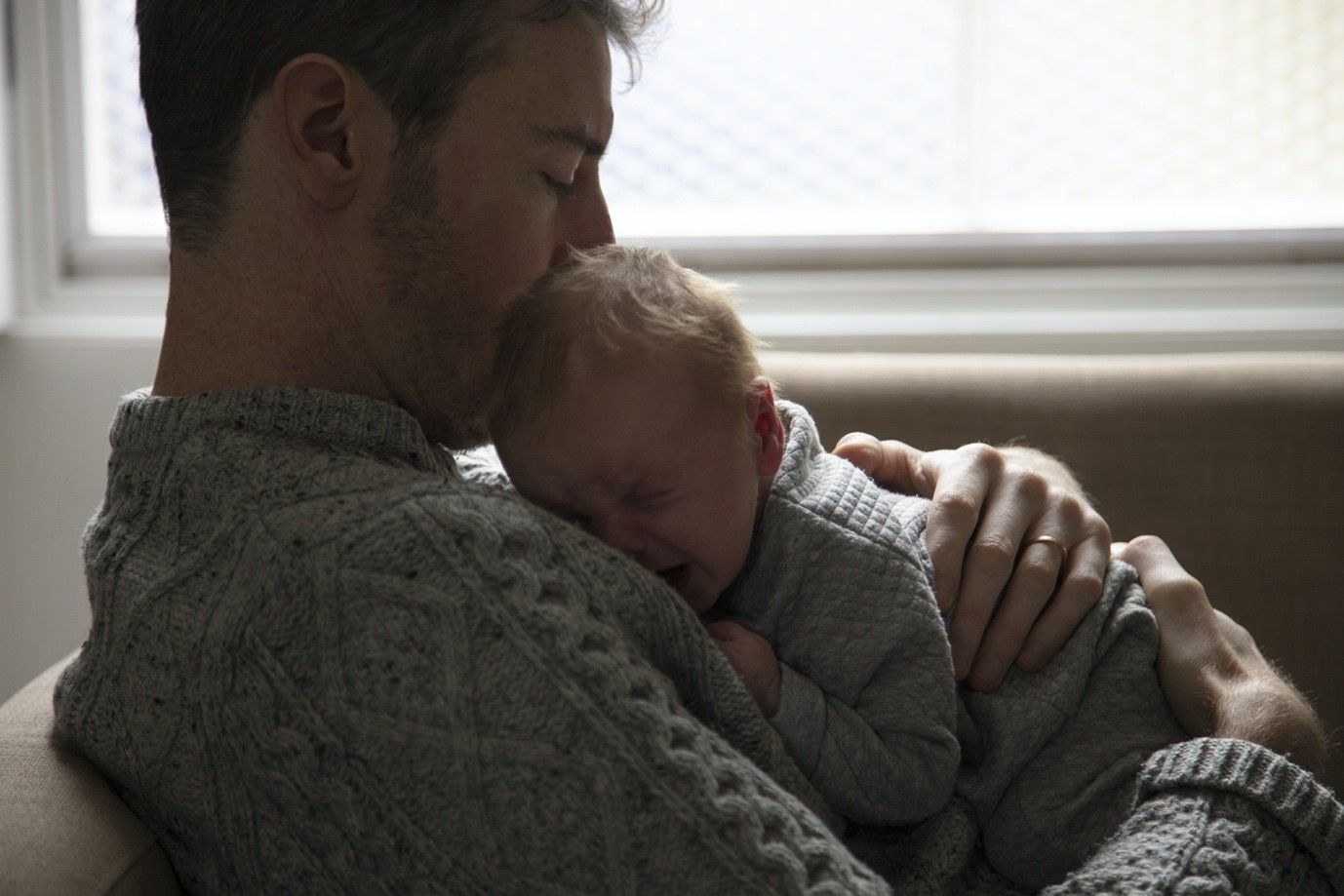Perinatal mental illness refers to parents or carers experiencing mental health issues such as depression or anxiety in the period leading up to birth, or in the year after birth. Often, discussions of perinatal mental illness focus on new or expecting mums. However, many people are surprised to learn that men can experience equally valid struggles as they become a father.
Symptoms of perinatal mental illness in men
All genders experience some similar symptoms of perinatal mental illness. However, there are also some differences in how this can affect women and men. Many women struggle with their role as a new mum, evolving relationships, and feelings of uncertainty and confusion around caring for a newborn when they may have previously felt capable and in control over many aspects of their lives.
Men can experience some of the same challenges, including lack of confidence in their role as a parent, and also changes in their relationship with their partner, as well as their family and friends. Sometimes men react to these difficulties by becoming withdrawn, immersing themselves in their work, or engaging in substance abuse. Alternatively, men with anxiety and depression may feel wound up, frustrated, or unable to relax – a feeling sometimes described as ‘like being trapped’, or ‘pacing in a cage’. They can have outbursts of anger or rage that are ‘not in character’, leading to feelings of shame or guilt.
Signs you or a new dad you know may be struggling include:
- Loss of interest in things that used to be exciting
- Reluctance to socialize, even with partner or baby
- Fear of being alone with the baby
- Feelings of failure
- Overwhelm
- Changes to appetite
- Sleeping too much or not enough
- Increased use of drugs or alcohol
- Thoughts of harming the baby
- Suicidal thoughts
- Withdrawing from support networks
- Fatigue
Breaking the stigma around men’s mental health
There are misconceptions within society that anxiety or depression make us ‘weak’, or that ‘emotional men’ are not ‘manly’. These perceptions are untrue and can be damaging to a male’s self-esteem. It is normal for men to struggle with mental health, especially as they become a parent.
Change can be challenging, and it is understandable to experience a drop in mental health, or an increase in stress and anxiety during any big change in our life – particularly when embarking upon the journey of parenthood. Encourage your male loved ones to express their emotions if they can – it’s better talking about difficult feelings than sitting on them and letting them build.
If you or someone you know may be struggling with perinatal anxiety or depression, consult PANDA’s Mental Health Checklist for Expecting and New Parents. This is not a diagnostic tool, though might confirm the need to seek help.
Seeking help is one of the strongest things you can do to support your family. Consult your GP or therapist if you’re experiencing a negative change in mood or behavior for two weeks or more.
Parenthood is full of ups and downs! If you are struggling, you are not alone, and it does not make you a bad parent. If you need support, reach out to loved ones, speak to your health professionals, or call the PANDA Helpline on 1300 726 306.
You can also check how you're feeling with the PANDA ‘Mental health checklist for new dads and non-birth parents' which is specifically for non-birth parents to check in with their emotions and gauge their mental health at a point in time.



